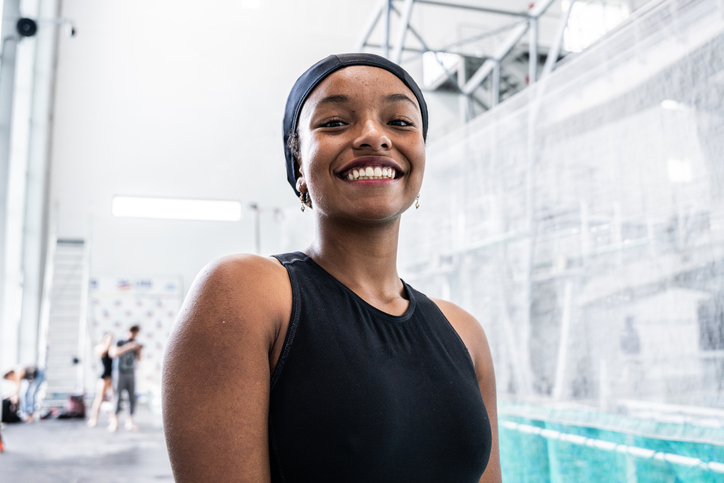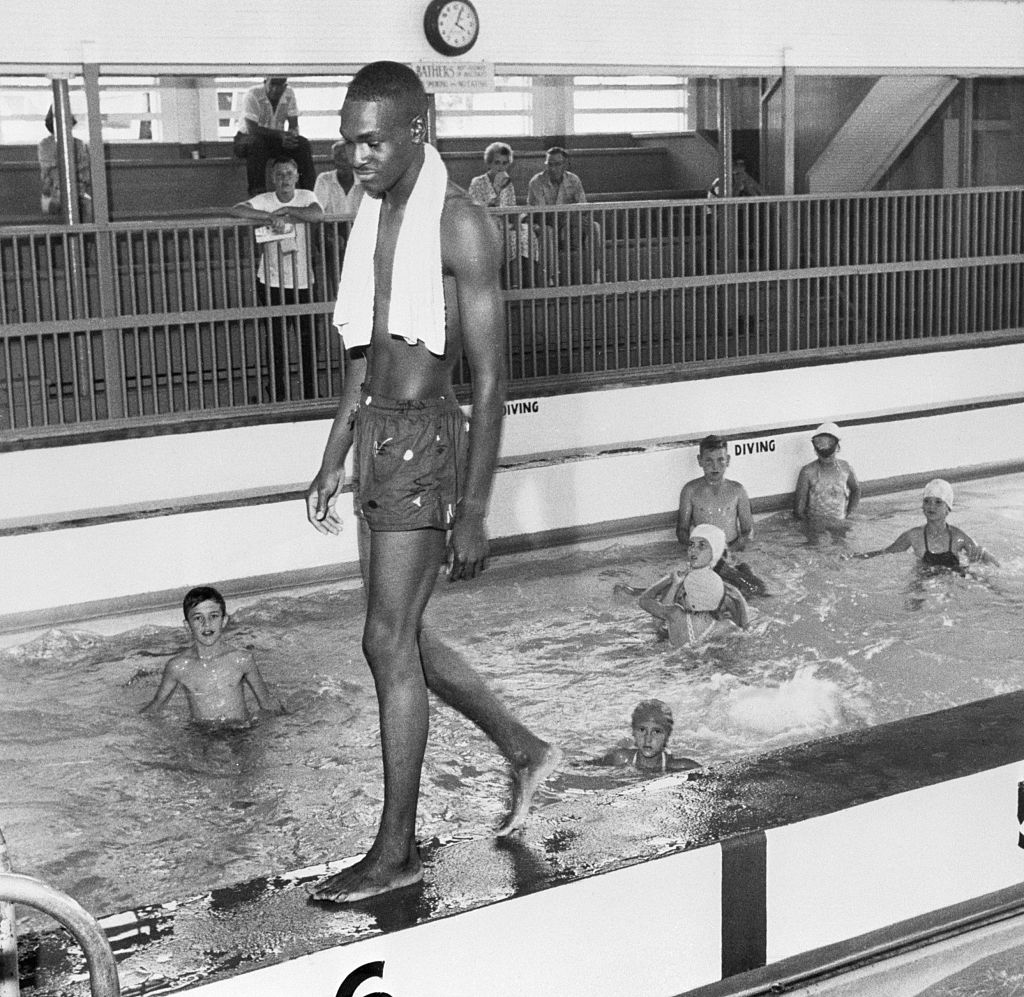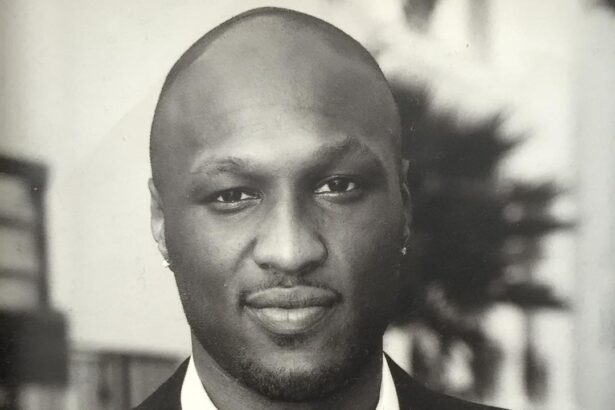Representation Challenges and Trailblazers in Professional Swimming
Efforts have been made in recent years to break the cycle of exclusion. Community organizations, educational programs, and initiatives focused on water safety and swimming education have emerged to provide access and opportunities for marginalized communities to learn how to swim.
In 2020, British swimmer Alice Dearing became the first Black British woman to compete at the Olympics. The 26-year-old athlete is working to bring inclusion and representation to the industry. She is also the founder of the Black Swimming Association, advocating for diversity in aquatics.
Historically, swimming caps have posed challenges for athletes of color. Traditional swim caps are often smaller and tailored for individuals with thinner hair, making it difficult for swimmers with natural hairstyles like locs, braids, or kinky curls to protect their hair from water and chlorine damage. The absence of suitable swim gear has led some swimmers of color to consider leaving the professional sport.
Launched in 2017, SOUL CAP was created to accommodate Black swimmers and individuals with thick and voluminous hair. The company faced a setback in 2021 after FINA initially banned the use of their inclusive swim caps at competitions. However, FINA dropped the ban in 2022.
“So many people in my family did not learn how to swim because, you know, their hair wouldn’t stay straight, or it’d be too unruly, or whatever,” said Division 1 swimmer Erin Adams regarding FINA’s discriminatory ban. “We’re always policed on what we can wear and what our bodies are looking like, and what our hair is looking like. They’re just trying to make it difficult for us to have ease when participating.”
“`





